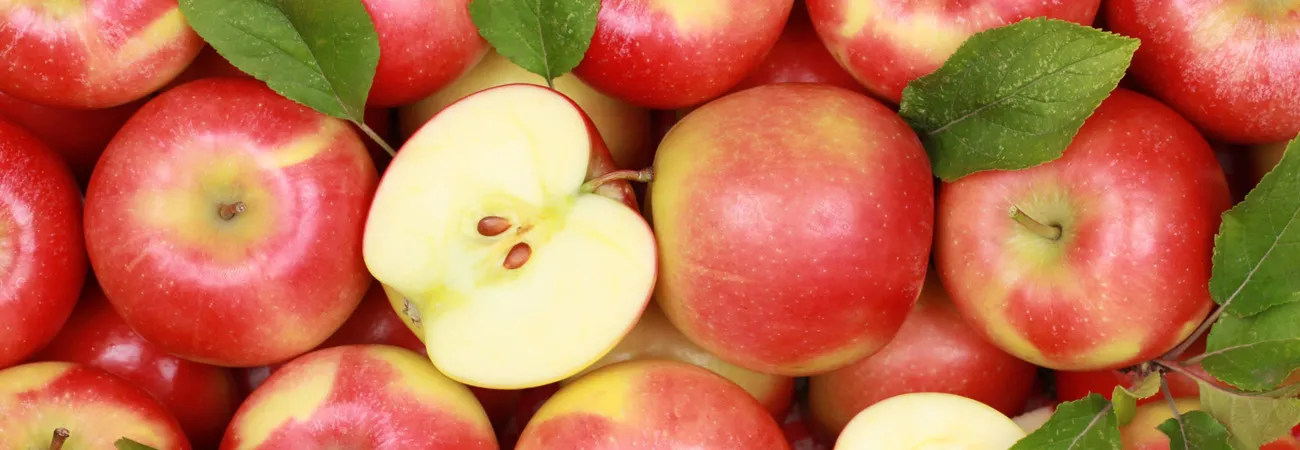i ECONOMY
Balochistan's apple production, which holds the second position just after dates, has been significantly impacted by last year's devastating floods. As a result, it is expected that the orchards will only yield half of their usual output this year. "While the exact figures are still undergoing compilation, we can reasonably estimate a roughly 50% reduction in apple production this year," Mahaz Ullah, Assistant Director of Crop Reporting Services, Balochistan, told WealthPK. There is noticeable evidence that the primary apple-producing regions have experienced a decline in fruit yield this year, he further noted. The elevated terrains of Balochistan, spanning districts such as Quetta, Pishin, Loralai, Ziarat, Qilla Saifullah, Mastung, Qilla Abdullah, Kalat, and Barkhan, function as pivotal apple cultivation zones. Mahaz said, "Within these areas, the Pishin district stands out as a significant contributor to the province's apple output."
“Additionally, dates production has also seen a sharp decrease of over 60%, while 40% to 45% drop in grapes production has also been seen this year due to the last year’s heavy floods,” Mahaz Ullah observed. Grapes are grown in Quetta, Mastung, Kalat, Khuzdar, Panjgur, Kharan, Washuk, Pishin, Qilla Saifullah and Qilla Abdullah districts. Balochistan province, often referred to as the "Fruit Basket of Pakistan," takes pride in being the largest fruit producer in the country. Its agricultural sector sustains 75% of the population due to limited industrial and employment opportunities. The province's unique climate, particularly favourable for deciduous fruits like apples, sets it apart from other parts of the country. Nonetheless, the preceding year posed an unprecedented challenge as floods in early August wrought havoc upon fruit orchards.
The resultant destruction has profoundly impacted apple, dates and grapes production, leaving farmers grappling with enduring consequences. According to the Global Risks Report 2023, “Over 800,000 hectares of farmland were wiped out by floods in Pakistan – increasing commodity prices significantly in a country that was already grappling with record 27% inflation.” Another report, jointly issued by the United Nations Development Organisation and other entities, underscores the damage inflicted by the 2022 floods, totalling a staggering Rs890 billion. Among these losses, the irrigation sector alone recorded over Rs9 billion in damages. The region's abundant natural resources and diverse plateaus play a pivotal role in enhancing Balochistan's agricultural prominence.
In addition to a rich variety of apples, the province yields dates, cherries, apricots, pomegranates and grapes. The Food and Agriculture Organisation (FAO) highlights, “The diversity of climates in the province is a blessing for growing various fruit crops ranging from temperate to sub-tropical and tropical.” Main fruits grown in Pakistan Balochistan accounts for 32.6% of Pakistan's fruit area and 17.4% of its production, contributing significantly with almost one million tonnes of fruits from 0.23 million hectares. The province’s apple cultivation spans approximately 0.101 million hectares, yielding about 0.224 million tonnes valued at roughly Rs6.7 billion. “The surplus over local demand finds its way to other provinces in Pakistan, and high-quality produce reaches international markets,” according to All Pakistan Fruit & Vegetable Exporters, Importers & Merchants Association (PFVA).
However, a significant hurdle lies in the potential for fruit exports from Balochistan. The quality of apple plantation falls short of international export standards, limiting their suitability primarily to domestic consumption. According to Pakistan Export Strategy Fruits and Vegetables 2023-27 report, “Apples and grapes plantations in Pakistan lack the quality and variety required for exports and are suitable only for domestic consumption.” Looking at province-wise apple production from 2016-2022, Balochistan consistently emerges as a robust contributor, with figures steadily increasing to about 686,000 tonnes, as shown by following table: Province-wise apple production from 2016-2022 “Fruit crops are extremely water-sensitive.
They cannot grow to a desirable level and their quality is affected if water is not given in a timely manner,” Ali Bux, an apple farmer, told WealthPK. “Balochistan's economy heavily relies on agriculture, but water scarcity is a critical concern here, and addressing this challenge is pivotal for bolstering apple and other fruits production,” he said. “Moreover, tube wells cannot be run to water orchards owing to frequent power outages, which affects the fruit quality too,” Ali Bux said. “If sufficient quantity of water is supplied to farmers, Pakistan can produce good quality apples and earn a lot of foreign exchange by exporting large quantity of delicious apples,” he stressed. Strategic investments in irrigation, cold-storage infrastructure, and airconditioned transportation are also crucial for maintaining fruit quality and minimising spoilage risks, Ali Bux stressed.
“The government should provide cold-storage facilities at the district level. Presently, these facilities are only available in Lahore, Karachi, Multan, Islamabad and other big cities of Pakistan,” he pointed out. The introduction of high-yield, drought-resistant and disease-tolerant fruit varieties is also essential, Ali Bux said. Farm-to-market roads and consistent electricity supply can also play pivotal roles in enhancing fruit production and exports, Ali Bux added.
Credit: Independent News Pakistan (INP)









